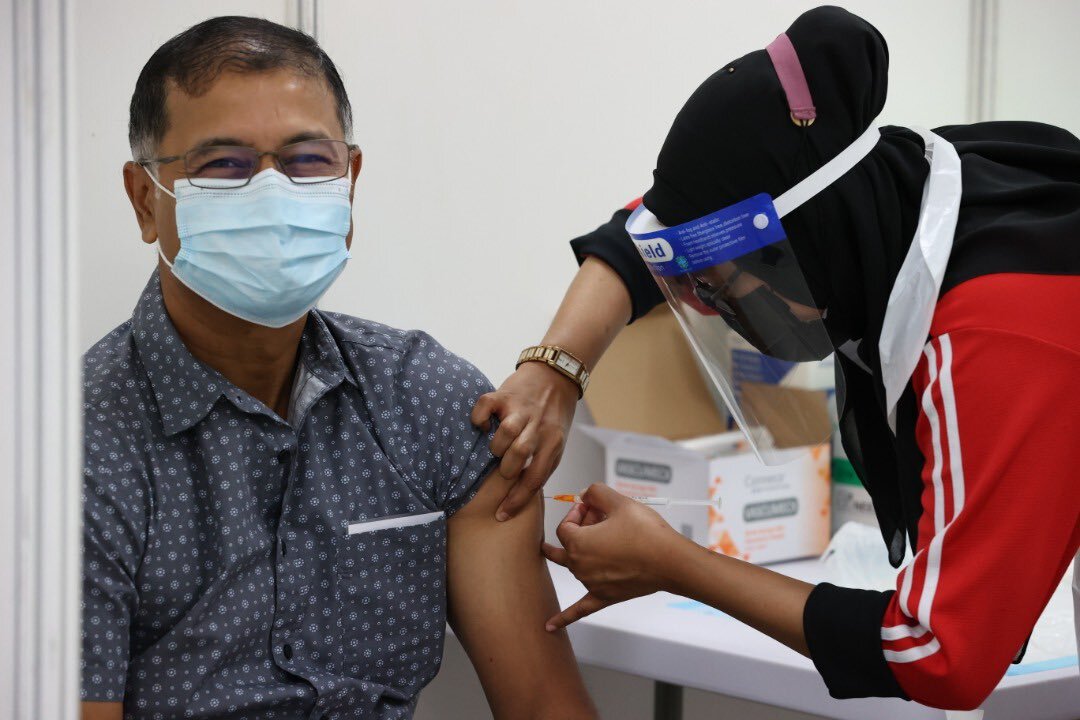KUALA LUMPUR, May 7 — Azreen Zahira, a 37-year-old woman from Kuching, took about two seconds to come up with the trending hashtag #CucukMYAZ for the opt-in rollout of AstraZeneca-Oxford’s Covid-19 vaccine.
Azreen, a Sarawakian freelance content specialist and part-time pastry commis who currently lives in Kuala Lumpur, tweeted recently that she eventually settled on #CucukMYAZ after initially considering MYAZ, SuntikAZMY, and CucukAZMY.
“I suggested it because it sounded casual and mildly funny (yes, because it sounds like “cucuk my ass”). I had been seeing a lot of anger and despair on Twitterjaya so I figured a few people would use the hashtag to lepas geram. At most I thought 10 mutuals would use it,” Azreen tweeted.
But the funny hashtag trended in Malaysia and was even used by the Ministry of Health’s (MOH) official Twitter account, while the Special Committee on Ensuring Access to Covid-19 Vaccine Supply (JKJAV) retweeted several people using the #CucukMYAZ hashtag after getting their AstraZeneca shots.
“Maybe I’m jinxing it by saying it, but I haven’t seen many negative tweets on the hashtag. Everyone who registered seems excited to get their shot, and eager to help others understand the process. I love it because vaccines are something I strongly encourage people to get,” Azreen tweeted.
Ironically, the Sarawak state government has rejected the AstraZeneca vaccine, although Sibu Divisional Disaster Management Committee coordinator Dr Annuar Rapaee reportedly said Wednesday that Covid-19 vaccine brands do not matter, as he stressed that the best vaccine is the “first vaccine we can get regardless of type”.
Azreen said she had received every childhood vaccine, except for the measles shot scheduled at nine months, because she had contracted measles earlier when she was six months old and subsequently recovered.
She explained that herd immunity is achieved when enough people are vaccinated so that people who cannot get inoculated against Covid-19 at the moment, such as babies and children, will also get protection from the disease.
US pharmaceutical company Pfizer reportedly said Tuesday that the US Food and Drug Administration (FDA) is expected to authorise Pfizer-BioNTech’s Covid-19 vaccine for children aged 12 to 15 years early next week. The shot is currently approved in the US for those aged 16 and older. In Malaysia, Covid-19 vaccines by Pfizer, AstraZeneca, and Sinovac are currently only authorised for people aged 18 and above.
“#CucukMYAZ showed that the AstraZeneca option can give us a chance at reaching herd immunity faster. It showed that many people WANT to get vaccinated, and that people who are on the fence can change their minds if we just show them that it’s not scary,” she tweeted.
Azreen told CodeBlue yesterday that she managed to get a mid-May slot for her AstraZeneca jab at World Trade Centre in Kuala Lumpur.
When asked about her thoughts on the first-come-first-served basis of the AstraZeneca vaccination online booking system that was first opened up for residents of Kuala Lumpur and Selangor, Azreen said: “The best vaccine is the one people can get earliest”.
“The first-come-first-served system is a good patch, considering the many complaints about how slow PICK (National Covid-19 Immunisation Programme) has been. That being said, it’s not a very fair system: not everyone has the access and knowledge needed to ensure they can get a slot.
“So it’s great that it’s enabling people who want the vaccine to get it without a long and uncertain wait. What’s not great is that it makes quick access to the vaccine a privilege, and that it feels like it’s making up for the perceived failings of the main vaccination programme,” she added.
The Sarawakian also urged the Sarawak state government to include AstraZeneca in its Covid-19 vaccine rollout.
Sky News reported last month the UK’s drugs regulator, the Medicines and Healthcare Products Regulatory Agency (MHRA), as saying that the risk of rare blood clots linked to AstraZeneca vaccination is one in 250,000, or 0.0004 per cent.
In contrast, pulmonary embolism, or clotting in the lungs, occurs in 7.8 per cent of people with Covid-19, while deep vein thrombosis, or clotting in the legs, happens in 11.2 per cent of people who have Covid-19.







